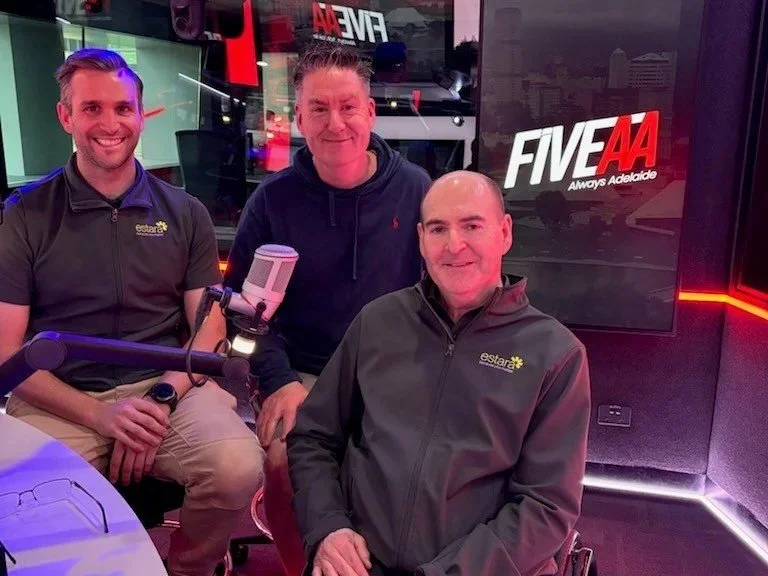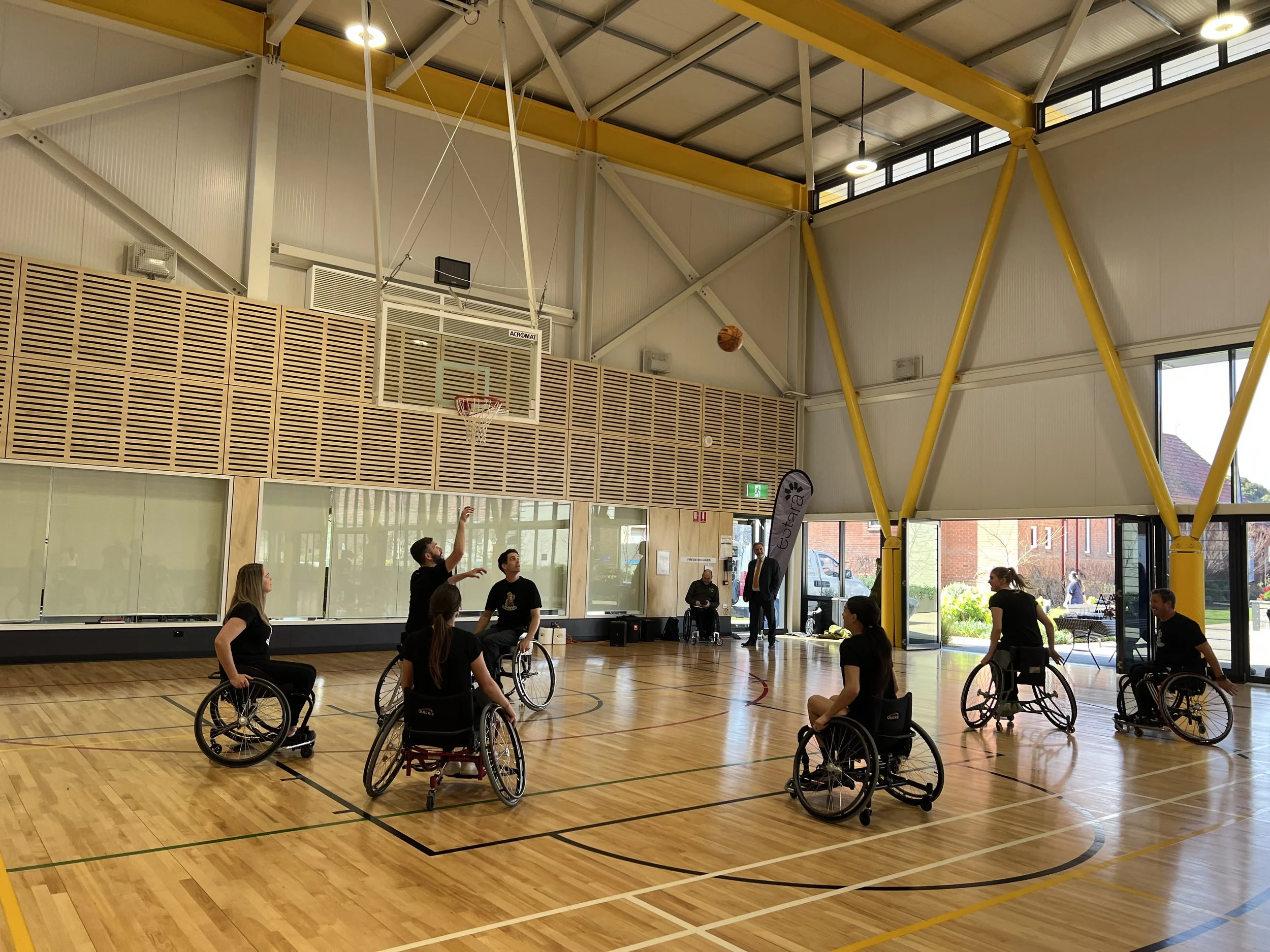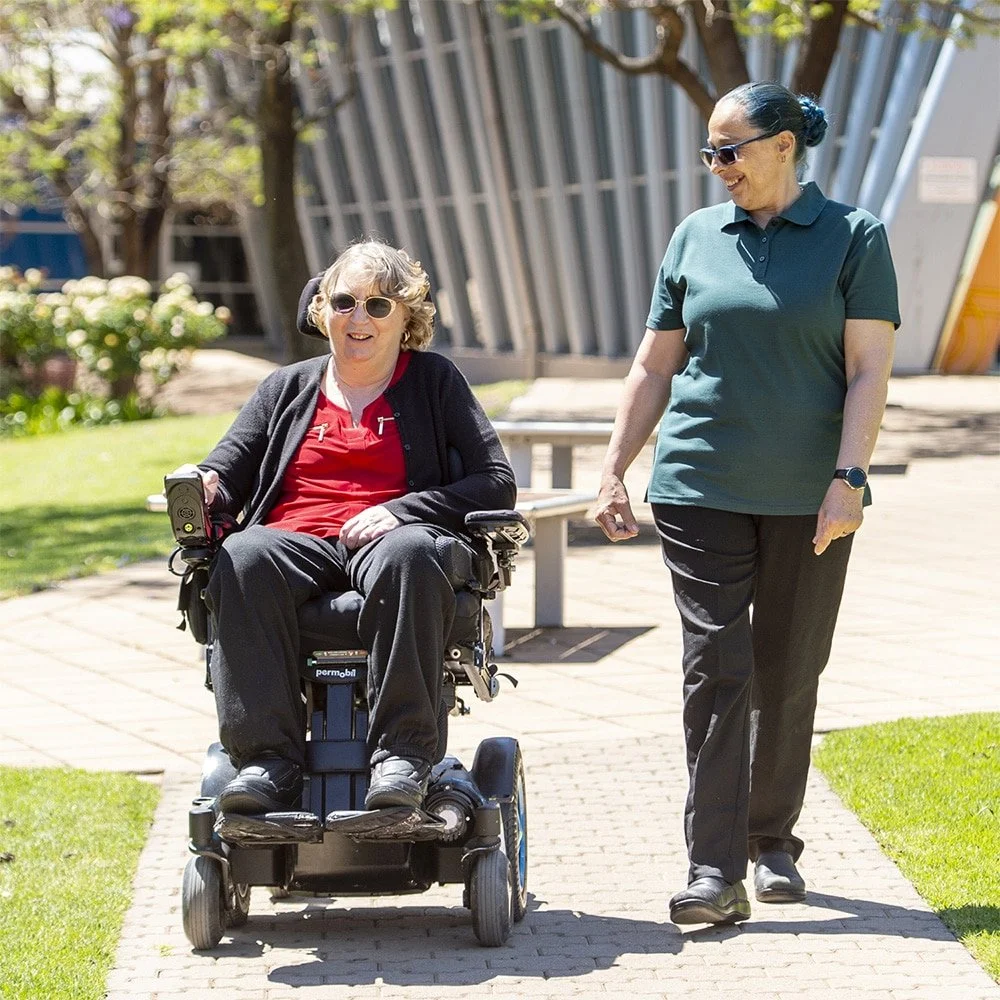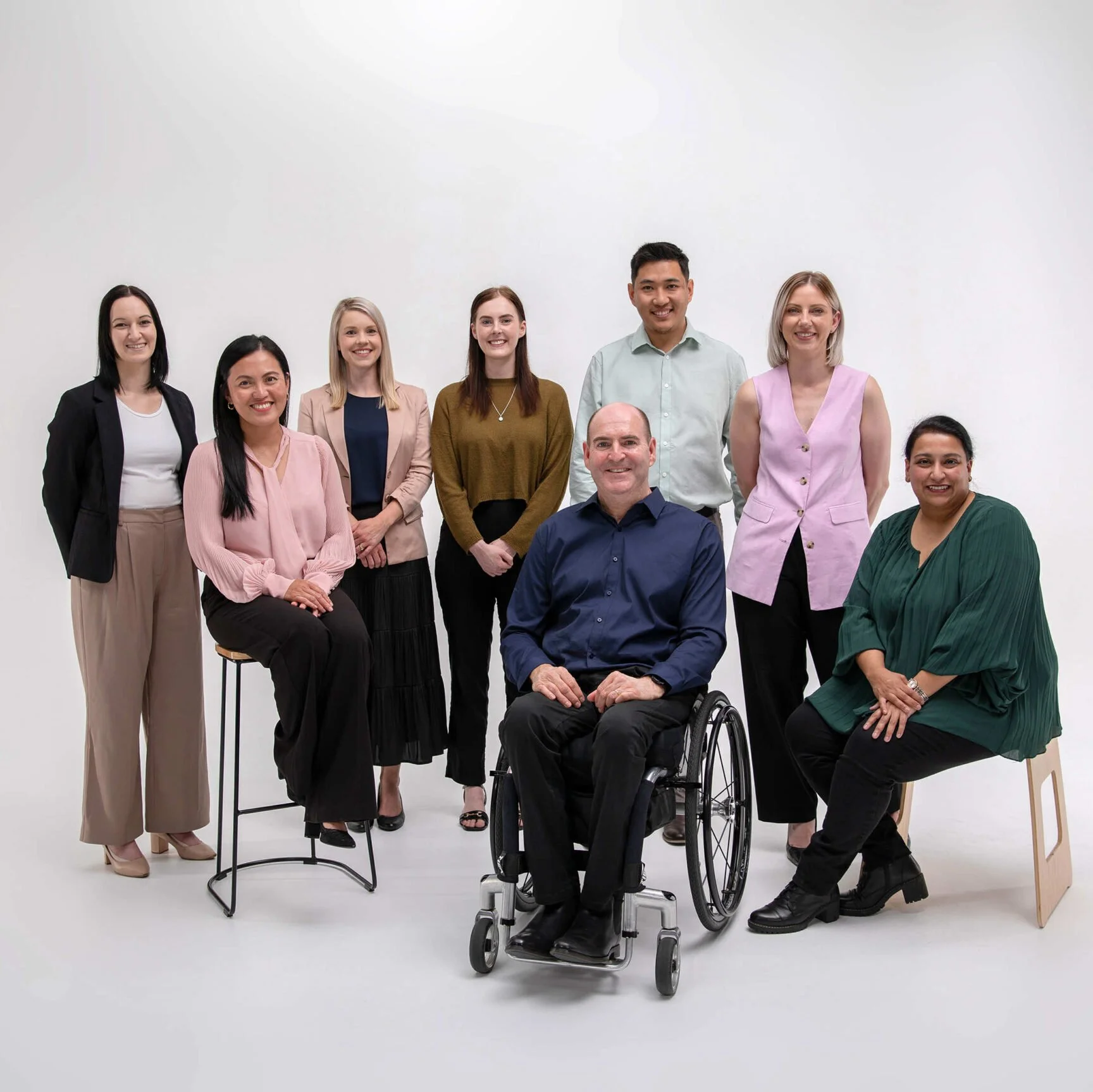Be Informed.
What’s happening at estara and within the disability sector?
estara talks to Leith Forrest on 5AA
Listen to Lloyd Townsend (OT and Clinical Lead) and Graham O’Neil (Peer Support Mentor) talk to 5AA’s Leith Forrest about all things estara, spinal cord injury and their own personal stories.
Spinal Cord Injury Awareness Week 2025 Week wrap-up: connection, learning and community
A wrap up of what we got up to during International Spinal Cord Injury Awareness Week 2025.
Back to Basics: The unsung heroes of spinal cord injury health - bladder, bowel & skin
When we talk about spinal cord injury (SCI), conversations often focus on mobility, independence, or assistive technology. But some of the most impactful, and often most private challenges, are those that affect bowel, bladder, and skin health.
Virtual Reality Treatment for Neuropathic Pain
At estara, we’ve been using Virtual Reality to support our clients experiencing neuropathic pain associated with Spinal Cord and other injury. The technology has received a lot of interest – here’s how we are using it and what our clients have told us about their experience.
Caring for your shoulders after Spinal Cord Injury
Shoulder pain can be a common and frustrating issue for many people living with spinal cord injury (SCI). There are some really simple things you can do to maintain your shoulder health and maintain your independence.
Accessible Travel with Spinal Cord Injury – lessons from 23 years on the road
In this blog post we talk to Scott, one of estara’s Support Coordinators. A wheelchair user for 23 years, Scott has had a long association with travel for both leisure and professional purposes. He has travelled weekly as a sports competitor, run an accessible travel business and advised both national and State Governments, with his wife, on how to make experiences more accessible for people living with a disability.
Preventing falls during transfers for people with Spinal Cord Injury
This year’s Spinal Cord Injury (SCI) Awareness Week theme is all about fall prevention. We know that falls can lead to SCI, but our team here at estara is really focussed on preventing falls for our clients after SCI. These most often happen during transfers - getting from bed to wheelchair, wheelchair to toilet, in and out of the car, and so on. These are everyday movements, but they’re also some of the most common times when falls can happen.
Announcing estara’s new Chief Executive Officer
We’re excited to share an important milestone: the appointment of our new Chief Executive Officer, Nicole Sykes, who will be joining the organisation on the Monday 22 September.
NDIS Eligibility for Supported Independent Living (SIL)
Thinking about Supported Independent Living (SIL) through the NDIS? Here at estara, we know how important home is. We have been supporting clients to live independently for many years and long before the NDIS started.
Supporting Daily Living and Independence: How our Disability Support Workers Make a Difference
Living independently means different things to different people. We understand that for many people living with a disability, it’s about choice and control over daily routines,
estara Quarterly Recap: June
estara is excited to embark on the search for our next CEO. Recruitment has commenced and will likely take two months. We are seeking a leader with vision in the disability and human services sector and who has a client centred approach and a deep commitment to inclusion and improving the lives of people with a disability. We will keep you informed of progress.
Make a Difference as an Occupational Therapist at estara
At estara, we believe in supporting people to live life to the fullest, and we’re looking for dedicated, compassionate occupational therapists to join our growing team across South Australia.
What Is Supported Independent Living (SIL) and Who Is It For?
Supported Independent Living (SIL) offers a practical solution for people living with disabilities who want to maintain their independence while receiving necessary support.
Mt Gambier Office Opening
On 11 March 2025, the new office of estara in Gray Street was officially opened by Tony Pasin MP, Federal Member for Barker.
A Place to Call Home: Supported Independent Living at Brighton
A beautiful home in the heart of Brighton.
Choosing a Reliable NDIS Disability Service Provider
Finding the right NDIS service provider is essential for receiving high-quality care tailored to your unique needs. Whether you need in-home or community support, selecting a provider who aligns with your goals and values can make a significant difference. Here are key considerations and insights to guide you in choosing a reliable provider.
Enjoy the beach with estara’s supported accessible beach days
estara provides these accessible beach days in collaboration with the City of Holdfast Bay and is a wonderful opportunity for wheelchair users and those with mobility difficulties to safely enjoy the beach and water.
Supporting Diverse Disabilities with Personalised Care
At estara, we understand that each person’s experience with disability is unique. Our personalised support services are designed to empower individuals, helping them achieve their goals and lead independent, fulfilling lives.
estara supports JFA Purple Orange call to end SA’s accessibility housing crisis
This media release has been coordinated by JFA Purple Orange on behalf of SACOSS, COTA SA, Shelter SA, TACSI, Community Living Australia, Australian Institute of Architects, Uniting Communities, Novita, estara, and National Disability Services.
PQSA and Homecare+ is now estara
Today, South Australia’s peak body for spinal cord injury and disability service provider announced a major rebrand bringing together its existing brands Paraquad SA and HomeCare+ under the one unified brand name, estara.
Media enquiries
Journalists and media outlets can contact estara to learn more about our initiatives, partnerships and our social impact.






















